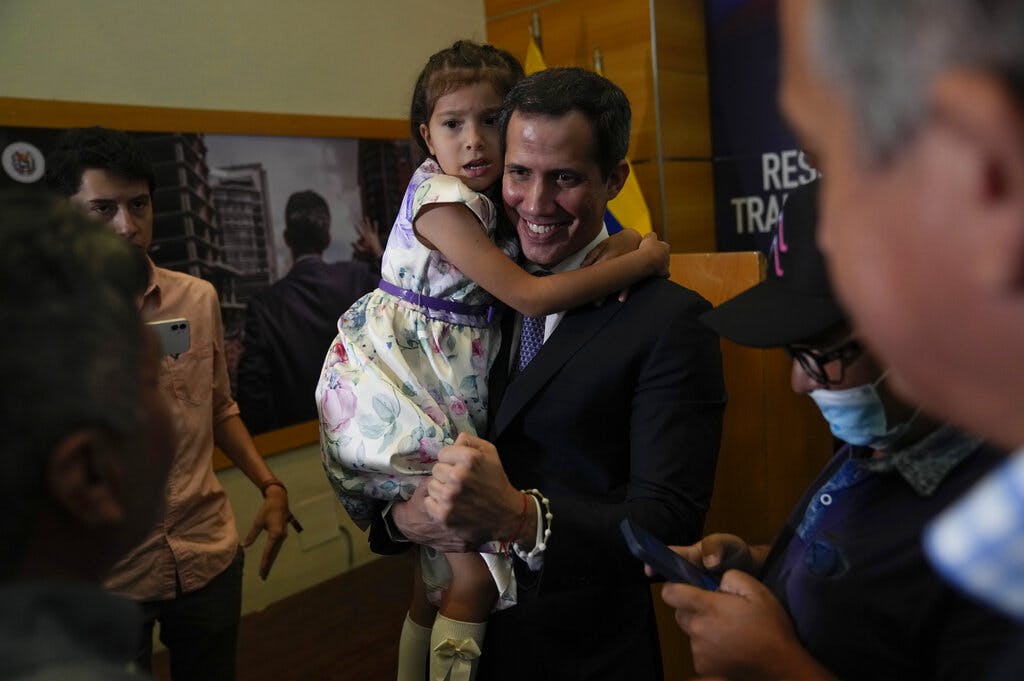Venezuela’s Maduro Hints at Moving Up Elections To Hamper Opposition
The 2024 elections have been viewed as an opportunity for a democratic transition in a country that has been ruled by the United Socialist Party since 1998.

The government of Nicolás Maduro is considering moving up by a year the presidential elections in Venezuela, in what political analysts say is an attempt to remain in power and fracture any opposition he may face in the vote.
The 2024 elections have been viewed as an opportunity for a democratic transition in a country that has been ruled by the United Socialist Party since the party’s founder, Hugo Chavez, was elected president in 1998. Analysts say Mr. Maduro’s latest move may shatter that hope by creating chaos and uncertainty among the already-fractured opposition groups.
On Friday, Mr. Maduro announced that elections could be held before their currently scheduled date in 2024. If this were to happen, he said, his side will be ready for a “big popular victory.”
Last week, the Wall Street Journal reported that President Biden is considering lifting sanctions on Venezuela to allow Chevron Corporation to resume pumping oil there in exchange for reopening suspended negotiations between Mr. Maduro and opposition groups in the country. Part of Mr. Biden’s deal hinges on the willingness of Mr. Maduro to hold free and fair presidential elections in 2024.
A National Security Council spokeswoman, Adrienne Watson, said the American sanctions on Venezuela will be reviewed “in response to constructive steps by the Maduro regime to restore democracy in Venezuela.”
Venezuela’s main opposition leader, Juan Guaido, has been seen as losing power within his party and is increasingly isolated on a continent that has had a number of left-wing leaders rise to power.
Even though he has been recognized as acting president of Venezuela by more than 50 nations, including America, many of South America’s new ruling class have refused to do so.
Among them are Colombia’s new president, Gustavo Petro, who won an election in June, and Mexico’s Andres Manuel Lopez Obrador, who boycotted the 2022 Summit of the Americas after President Biden refused to invite the Maduro regime, as well as Cuba and Nicaragua, to attend.
Analysts say Venezuela’s executive and legislative powers remain in the hands of Mr. Maduro, who is also supported by the country’s military. Mr. Guaido’s government has lost the support of the public, a Venezuelan political consultant, Pablo Quintero, says.
The already-fragmented opposition, political analysts say, will have to unite under one umbrella if it has any hope of defeating the incumbents — if, that is, the elections are free and fair, as Mr. Maduro has promised.
Recent polling released by a local agency, Delphos, suggests that while 72 percent of the population wants to be rid of the current regime, 40 percent of those same respondents said there was no legitimate political opposition in the country.
Mr. Maduro’s comments on Friday are part of a strategy to deepen fissures in the opposition, which is in the process of rearranging its party and choosing a candidate for the upcoming presidential elections, Mr. Quintero says.
“These are small doses of anxiety that Nicolas Maduro is injecting into the opposition,” Mr. Quintero says. “This creates chaos and uncertainty in the opposition.”
The director of the Americas Program at the Center for Strategic and International Studies, Ryan Berg, said that Mr. Maduro’s strategy of moving the election up is meant to “exploit divisions within the opposition.” Elections will be held when the regime perceives there is no threat to its power, he said.
Even though the executive power doesn’t have the authority to alter the electoral process, the electoral institutions are under the influence of the Maduro regime, Mr. Berg said.
The National Electoral Council in Venezuela has failed to address electoral irregularities and violations throughout the years. The 2021 regional elections, in which the regime’s party won 83 percent of governorships, was filled with irregularities, vote miscounts, and fraud, according to international groups that oversaw the election.
The American State Department rejected the 2021 elections, claiming they were “grossly skewed,” and “deprived” the country of fair and free elections.
In the 2018 presidential elections, during which Mr. Maduro was re-elected for a second six-year term, Mr. Guaido accused Mr. Maduro of committing fraud after he moved the election date forward, to May from December. Institutions and countries of the region, including America, denied the election, calling it “an insult to democracy.”

